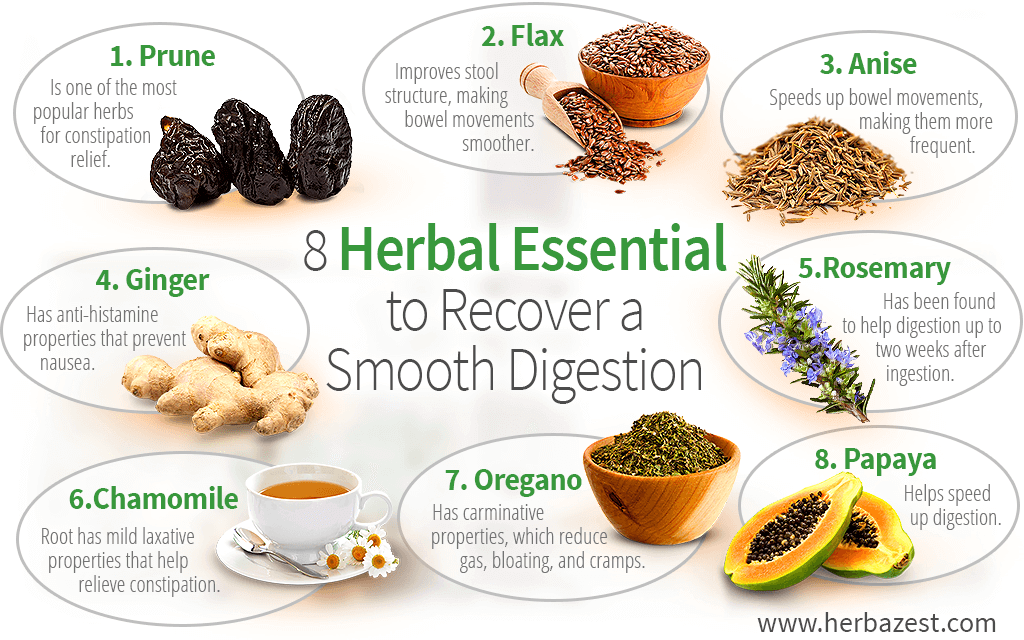 8 Herbal Essentials to Recover a Smooth Digestion | HerbaZest
8 Herbal Essentials to Recover a Smooth Digestion | HerbaZestAre you feeling Bloated? Here are 5 simple ways to increase digestion Although it is not something that we like to share, some days we can feel swollen, "destroyed" and creepy. Maybe we had an unusually large meal the night before, or ate something that doesn't agree with us, or it's completely out of nowhere. Whatever the cause, there are some simple and natural ways that can help increase digestion and make things move again. " Bloating and other digestive symptoms have, with a report that indicates that 87 percent of Australian women suffer from digestive problems (including swelling), "Charlene Grosse, a certified dietitian and DAA spokesman, said HuffPost Australia. "It is thought that digestive problems are caused by the nerve ends in our digestive system being hypersensitive to fermentation and wind production, which can result in the movements of flatulence, distended, swelling and alteration of the intestine. "The feeling of swelling from time to time is normal. However, if you are permanently swollen, this needs to be further investigated by a health care provider to rule out any underlying health condition possible. Common causes for slow digestion and swelling" Fat and swelling can be the result of food options -- from too many foods of alcohol, salt, sugar, and high fat, to natural fermentable sugars in fruits, vegetables, dairy, legumes, grains and cereals," Grosse said." For others it is the amount and type of fiber they are eating, the speed they eat (too fast), jumping out meals and having large portions. "According to the nutritionist, our bodies may contain more fluid on any given day, caused by things such as lack of exercise, long distance flights, premenstrual swelling, hormones and diet. "Slow digestion can be worsened by rich or high-fat foods such as fat red meats and creamy foods," Tuck told HuffPost Australia. "Food intolerance can also cause swelling, so it is prudent to monitor symptoms so that you can start tracking which foods cause uncomfortable swelling. "Other common causes for slow digestion and swelling may relate to intestinal poor health," the nutritionist explained."[ This includes] disbiosis (from overcrowding and imbalance of bad bacteria or bacteria in the wrong place, food allergies or intolerances including FODMAP sensitivities), low stomach acid production and poor enzyme production," said Bingley-Pullin. "If you have continuous digestive problems, pain, blood in your feces, or wake up at night to use your intestines, it is important to see your GP," Grosse said. "Many digestive symptoms are generic for several diseases, so it is important to have the correct tests to identify the cause of your symptoms. "For general swelling and slow digestion, try these five simple tips.1. Soft exercise Although it may not be the first thing you want to do when you swell, exercise can do wonders for digestion. " Walking or running smoothly can help stimulate bile production and digestion, and can even help stimulate the intestines," Tuck said. "Deep breathing can also help stimulate the colon, helping constipation, so exercise and even yoga can be extremely beneficial. "2. Feed your gut"Good intestinal health requires a regular intake of fiber, prebiotics (found in vegetables, legumes and fruits), probiotics (found in yogurts with living cultures, sauerkraut, miso) drinking adequate water and exercising," Grosse explained. "The fiber is relatively unworthy and helps maintain the healthy digestive system by adding bulk to the feces and being an important source of food for bacteria in our intestines. "There are two main types of soluble fiber that helps to resell the feces and allows you to spend more easily through the gut (e.g. oats, legumes, psych, fruit and vegetable meat) Insoluble fiber that accelerates the time that food passes through the intestine (find in nuts, seeds, fruit and vegetables skins). There are two main types of soluble fiber that helps to resell the feces and allows you to spend more easily through the gut (e.g. oats, legumes, psych, fruit and vegetable meat) Insoluble fiber that accelerates the time that the food passes through the intestine (find in nuts, seeds, fruit and vegetable skins) .3. Eating slowly and without distractionsEating in a hurry or with distractions such as TV can inhibit proper digestion, which leads to feeling swollen and uncomfortable, Tuck explained. "Get the food thoroughly until it's almost liquefied in the mouth," Tuck said. "Saliva contains enzymes to initiate the digestive process, so if we are relieved of food and not chew it thoroughly, this may have a negative impact on digestion. "4. Identify and manage stress The most likely thing is that if you feel stressed or anxious, your intestine and digestion can take a hit. "Stress has also been in some people to include meditation, walking and yoga in our weekly regime can be an effective starting point in managing our daily tensions," Grosse said. Identify food triggers"Keep a food journal to monitor foods that cause swelling, so you know what their trigger foods are," Tuck said. Following a low FODMAP diet under medical supervision can also help to make fun of what foods are not in agreement with you. Dietary changes can affect bacterial makeup in the intestine, so it's important to do them along with an expert who can help you. Dietary changes can affect bacterial makeup in the intestine, so it's important to do them together with an expert who can help you." FODMAPs refer to Fermentable Oligosaccharides, Disaccharides, Monosaccharides and Polyols. These are poorly absorbed sugars that can pass along the digestive tract and act as a food source to the bacteria that live there normally," Grosse explained. "Bacteria may digest or ferment these FODMAPs and may cause symptoms of IBS, including abdominal distention, swelling, changes in intestinal habits and excess wind. " FODMAPs are in a wide range of foods. A low FODMAP diet is tested for 4-6 weeks and for 75% of people, symptoms will improve. In the challenging phase, specific FODMAPs are identified to which a person is sensitive. "What not to do when experiencing digestion problems When you feel swollen, 'blocked' or sluggish, Tuck recommends avoiding processed foods. " Avoid eating foods that may worsen swelling, such as junk food and high sugar foods that can throw away the natural intestinal flora, creating more fermentation. Avoid high alcohol with sugar. "Although digestive symptoms may be the sign of food intolerance, Grosse warns of starting a diet of elimination without guidance and support from a health expert. "Dietary changes can affect bacterial makeup in the intestine, so it's important to do them together with an expert who can help you. " ALSO ON HUFFPOST AUSTRALIAAssociate Editor - Food, HuffPost Australia How MasterChef's Poh 'Dealt With The Heartache' After splitting from the 12-year-old husbandBuckingham Palace breaks silence in Meghan and the explosive Harry interview with OprahSaddest ever going home? Trump greeted for one supporter on New York's return. Hamilton is here to inspire Australia to finally create diversityPiers Morgan Storms Off Set As Meghan Markle Discussion Gets Heated Uber Passengers Pepper Spray, Cough On Driver In 'Appalling' Attack
How long does it take to eat? All about digestion In general, food takes 24 to 72 hours to pass through your digestive tract. The exact time depends on the amount and types of food you've eaten. The rate is also based on factors such as your gender, metabolism, and if you have any digestive problems that could slow or accelerate the process. At first, foods travel relatively quickly through their digestive system. Within 6 to 8 hours, the food has moved through the stomach, small intestine and large intestine. Once in your large intestine, the partially digested content of your food can sit for more than a day while it decomposes even more. It includes the following: gastric emptied (2 to 5 hours), small intestinal transit (2 to 6 hours), chronic transit (10 to 59 hours), and full intestinal transit (10 to 73 hours). Your digestion rate is also based on what you've eaten. Meat and fish can take up to 2 days to digest completely. The proteins and fats they contain are complex molecules that take longer than your body is unlearned. On the contrary, fruits and vegetables, which are high in fiber, can move through your system in less than a day. In fact, these high-fiber foods help your digestive tract work more efficiently in general. The quickest to digest are processed and sugary foods like candy. His body hurts through them in a matter of hours, leaving you quickly hungry again. Digestion is the process by which your body breaks down food and removes the nutrients your body needs to operate. Anything left is a waste product, that your body eliminates. Its digestive system is composed of five main parts: This is what happens when you digest food: When chewing, the glands in the mouth release saliva. This digestive fluid contains enzymes that decompose starches in their food. The result is a mushy mass called a bowl that is easier to swallow. When swallowed, the food moves through the esophagus, the pipe that connects the mouth to the stomach. A muscle door called lower esophageal sphincter opens to allow food to move in the stomach. Acids in the stomach further decompose food. This produces a mushy mixture of gastric juices and partially digested foods, called químe. This mixture moves to your small intestine. In its small intestine, its pancreas and liver bring their own digestive juices to the mixture. Pancreatic juices decompose carbohydrates, fats and proteins. The bile of the gallbladder dissolves the fat. Vitamins, other nutrients and water move through the walls of your small intestine in your bloodstream. The undigested part that remains moves to its large intestine. The large intestine absorbs any remaining water and nutrients left out of the food. The rest becomes solid waste, called stools. Your rectum stool stores until you are ready to have an intestinal movement. Some conditions may interrupt digestion and leave it with some unpleasant side effects such as acidity, gas, constipation or diarrhea. Here are some:To keep the food moving gently through your digestive system and prevent problems such as diarrhea and constipation, try these tips: Eat more green, fruit and whole grains Vegetables, fruits and whole grains are all rich sources of fiber. Fiber helps food move through your digestive system easier and completely. Limiting red meat and processed foods show that red meat produces chemicals linked to heart disease. Add probiotics to your diet These beneficial bacteria help to overflow harmful errors in your digestive tract. You will find them in foods like yogurt and kefir, and in supplements. Exercise daily Moving your body keep your digestive tract moving, also. Taking a walk after meals can prevent gas and swelling. Exercise also maintains its weight in control, which for certain cancers and other diseases of the digestive system. He sleeps a lot. A lack of sleep is, which can contribute to problems with your digestive system. Manage stress Excessive stress can worsen digestive conditions such as heart acidity and irritable bowel syndrome. Stress relief techniques such as meditation and yoga can help calm your mind. You may not think much about your digestive system every day. However, you will know when it does not work optimally for uncomfortable symptoms such as gas, swelling, constipation and diarrhea. Note what you eat and stay active to keep your digestive tract moving smoothly and feel your best. Last medical review on April 1, 2020Read this following
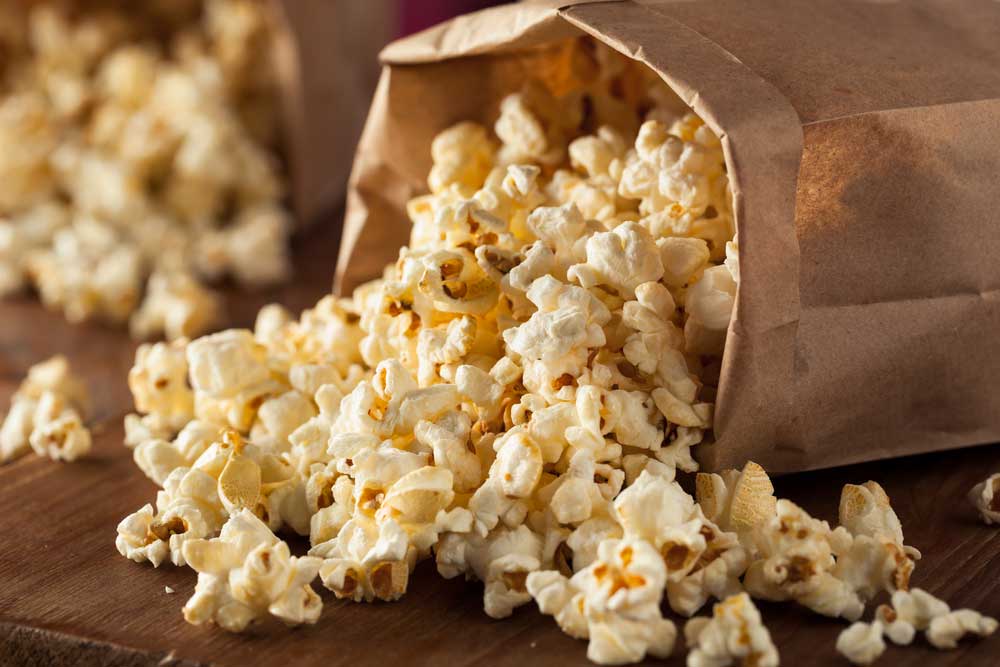
12 Best Food to Help Speed Up Digestion | On The Table
How to Speed Up Digestion (13 Ways) - Fitter Living
Pin on Well.Org
Speed Up Your Digestion To Improve It | Dr.Berg Blog
How to Speed Up Digestion: 8 Simple Remedies That Work - Life Infused
9 Ways To Speed Up Digestion Naturally | BIOHM Health
9 Ways To Speed Up Digestion Naturally | BIOHM Health
9 Ways To Speed Up Digestion Naturally | BIOHM Health
The 15 Easy Ways to Improve Your Digestion Naturally
From Fuel to Stool: 5 Tips to Speed Up Digestion | Cone Health Medical Group
Digestive System Storyboard by oliversmith
4 easy stretches to speed up digestion
8 Digestive Health Supplements - How to Speed Up Digestion - YouTube
How To Speed Up Or Slow Down Digestion - Glorious Food, Norfolk, UK
The 15 Easy Ways to Improve Your Digestion Naturally
How to Speed Up Digestion Naturally | POPSUGAR Fitness
Smart food combining helps speed up digestion, boost energy and ease digestive issues! Eat healthy food combi… | Food combining diet, Food combining, Healthy eating
Feeling Bloated? Here Are 5 Simple Ways To Boost Digestion | HuffPost Australia Food & Drink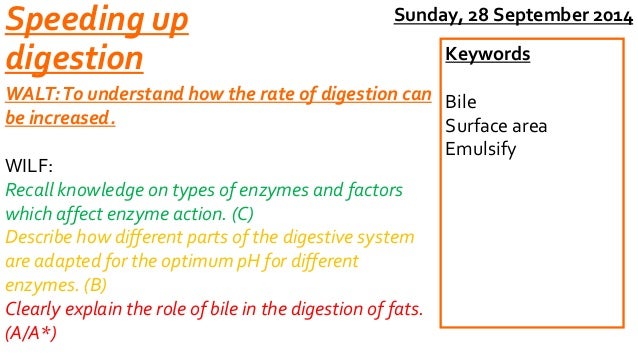
B2-3.4 speeding up digestion
7 Superfoods That Help Digestion | Everyday Health![How To Speed Up Digestion [Ultimate Guide] | Be Simply Healthy How To Speed Up Digestion [Ultimate Guide] | Be Simply Healthy](https://b-simply-healthy.com/wp-content/uploads/2020/10/Supporting-digestive-well-being-2.jpg)
How To Speed Up Digestion [Ultimate Guide] | Be Simply Healthy
How to Digest Faster | Ways to Speed Up Digestion![How To Speed Up Digestion [Ultimate Guide] | Be Simply Healthy How To Speed Up Digestion [Ultimate Guide] | Be Simply Healthy](https://b-simply-healthy.com/wp-content/uploads/2020/10/digestive_health-768x432.jpg)
How To Speed Up Digestion [Ultimate Guide] | Be Simply Healthy
The 19 Best Foods to Improve Digestion
Food Digestion Speeds | Food for digestion, Pre workout food, Food combining
7 Superfoods That Help Digestion | Everyday Health
Omnivore Vegetarian Digestion Speed Comparison | LoveToKnow
5 Ways to Digest Food Faster - wikiHow
7 Superfoods That Help Digestion | Everyday Health
how to speed up digestion during pregnancy
Protein Digestion: Choose Your Foods Wisely – VeloPress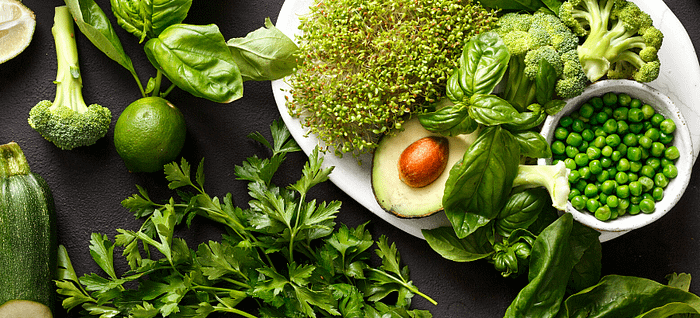
Foods to Help Speed Up Your Digestion | Gut Health Tips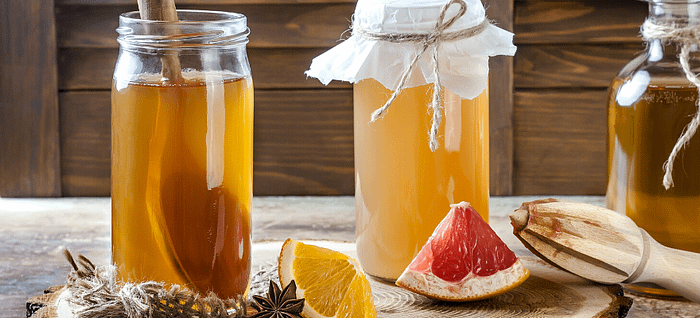
Foods to Help Speed Up Your Digestion | Gut Health Tips
9 Ways To Speed Up Digestion Naturally | BIOHM Health
How to speed up and improve digestion, transform food into energy in 10 mins with Qigong. - YouTube
Digestion: Duration, process, and tips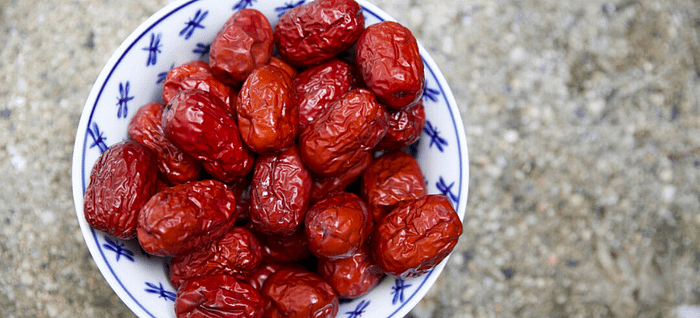
Foods to Help Speed Up Your Digestion | Gut Health Tips
Health Tips: How to Speed up Your Digestion Safely
5 Ways to Digest Food Faster - wikiHow
Digestive System - Ms. Blount's Biology Class 6
 8 Herbal Essentials to Recover a Smooth Digestion | HerbaZest
8 Herbal Essentials to Recover a Smooth Digestion | HerbaZest


















![How To Speed Up Digestion [Ultimate Guide] | Be Simply Healthy How To Speed Up Digestion [Ultimate Guide] | Be Simply Healthy](https://b-simply-healthy.com/wp-content/uploads/2020/10/Supporting-digestive-well-being-2.jpg)

![How To Speed Up Digestion [Ultimate Guide] | Be Simply Healthy How To Speed Up Digestion [Ultimate Guide] | Be Simply Healthy](https://b-simply-healthy.com/wp-content/uploads/2020/10/digestive_health-768x432.jpg)
















Posting Komentar untuk "how to speed digestion"